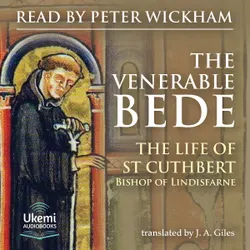The Ecclesiastical History of the English People was written in Latin by the Venerable Bede (673-735), a Benedictine monk living in Northumbria, an important Christian centre in the eighth century. It is a remarkable document, tracing, in general, early Anglo-Saxon history, and in particular, as the title proclaims, the growth and establishment of Christianity against the backdrop of the political life.
Bede finished it in 731 and immediately sent it to its dedicatee Ceolwulf, the king of Northumbria, who had expressed strong interest in the project. Bede starts his history, after a brief geographic description of the island, with the arrival of the Romans - first of all Caesar and then Claudius, through to Severus and Diocletian. He comments on the Christian persecution during Roman rule and recounts in some detail the martyrdom of St Alban.
Bede explains how the withdrawal of Roman rule in the fifth century ushered in a period of great instability with incursions by the Scots and Picts, then the Germanic peoples, Angles, Saxons and Jutes. But he notes the important turning points in the sixth century, Augustine’s mission to convert the Anglo-Saxons, the continuing influence of Pope Gregory the Great; and in the seventh century, the decision at the Council of Whitby (in 664) that ecclesiastical rule would come from Rome rather than the monks in Ireland.
Thereafter, the religious course of England was set. While religious developments are important to Bede - including his noted obsession with the timing of Easter - he does catalogue secular events and developments as well, and historians of our time regard his account as accurate and fascinating, giving us a fair picture of life in England in the days before Alfred the Great (847-899).
This recording uses the classic revised translation by A.M. Sellar. It opens with a biography of the Venerable Bede himself - clearly a remarkable individual - including the contemporaneous account of Bede’s death in 735, written by Cuthbert to Cuthwin.
The recording closes with a short account of the history of the early manuscripts and translations of the Ecclesiastical History.


